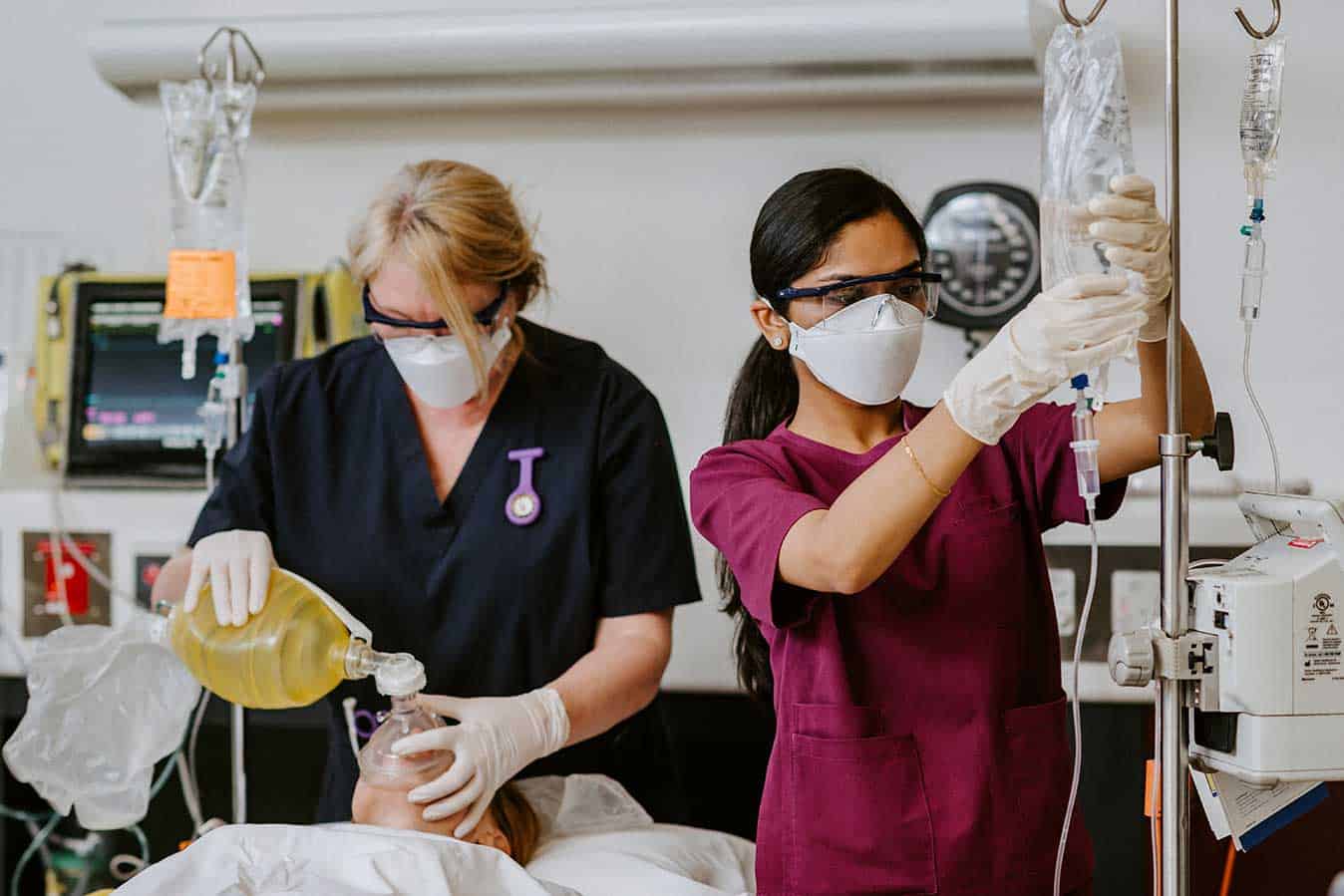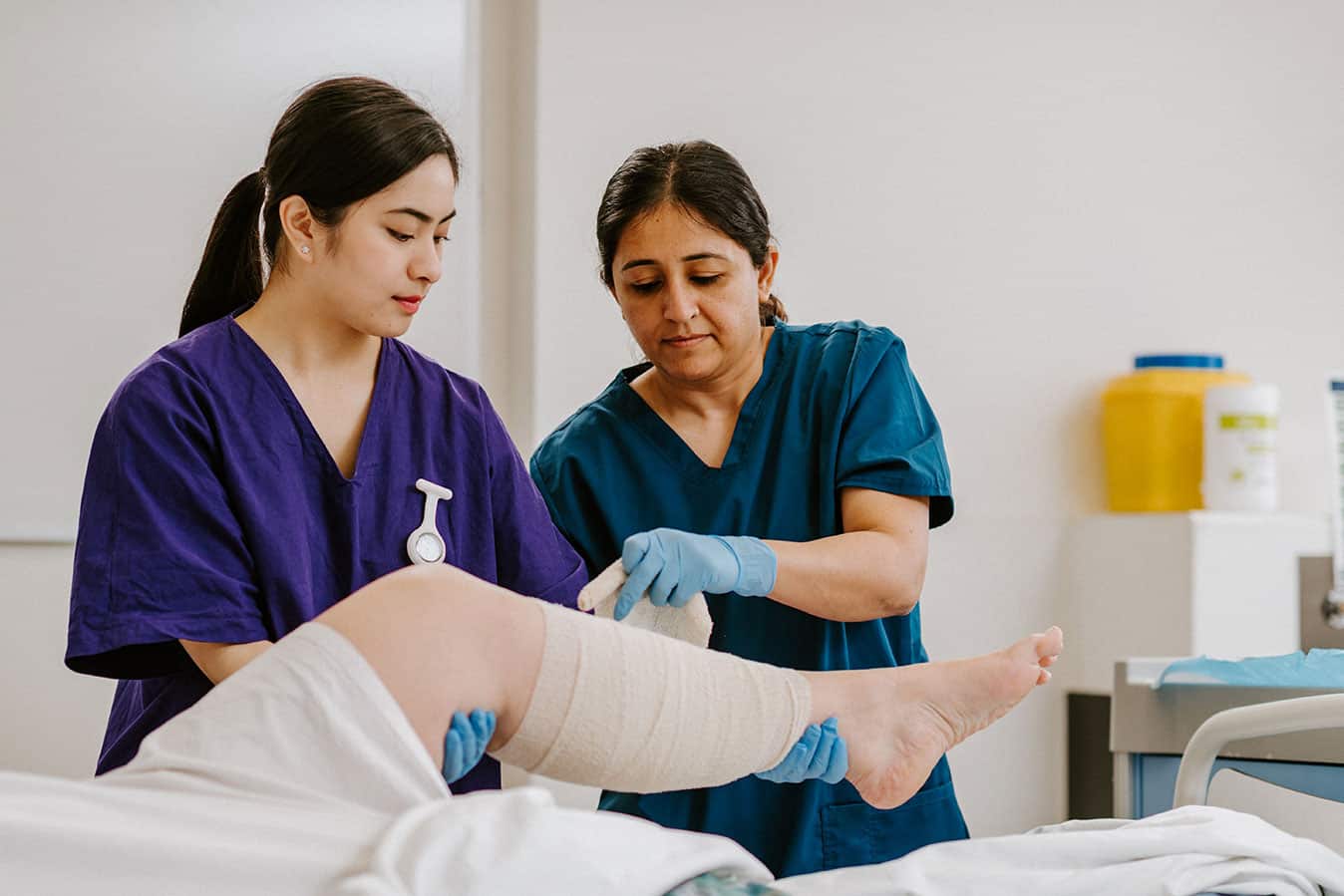Nursing students rate spending time with patients, performing assessments and observing nurses as they work the most beneficial to their learning while on clinical placement, a new Australian study has found. Commitments that take them away from the patient, such as tutorials and meetings, were less valued.
The study, commissioned by the Council of Deans of Nursing and Midwifery Australia and undertaken by four universities, argues that to maximise workplace learning for students on clinical placement, more consideration must be given to ensuring they are given goal directed activities, focussing on an expanded scope of practice, that support their development.
According to lead author Professor Marie Gerdtz, Head of Department Nursing at the University of Melbourne, the study had a two-pronged objective – to explore what clinical placements add to student learning and, equally, what students contribute to health service delivery and patient care.
The eventual project drew data from multiple perspectives – students, clinical facilitators and education and health service providers – including a survey of 469 students, as well as focus groups and interviews.
“This is the first time that anybody has tried to understand what clinical placements actually do, from those different perspectives, and we think that’s important because we need to understand what the clinical placement experience should provide,” Professor Gerdtz says.
A summary of the perceived value of clinical placements to student learning from the different perspectives identified widespread contributions.
For example, students reported gaining independence and confidence, developing an understanding of the ‘real life’ environment and role of the registered nurse, and developing more informed expectations through immersion in practice. They also said they developed skills in communication, critical thinking and reflective practice.
“I felt more confidence after every week of my clinical placement and also felt more encouraged and inspired to be a good nurse in the future after working alongside good nurses in the hospital and listening to the patients’ stories,” a second-year student who took part in the survey said.
Similarly, clinical facilitators believe clinical placements help students gain confidence and manage patient load and experience the realities of nursing, while education and health service providers said clinical placements are helping students develop a more complete understanding of the role of he registered nurse.
“They thought it was valuable that if they invested in students and engaged with students in positive ways that they were in a way contributing to their development and the future generation of nurses,” Professor Gerdtz says.

“They are our workforce and therefore it is up to all of us, not just one person, not the university, not the hospital – but it’s a combination of everyone coming together and making sure that we produce a workforce that is going to be sustainable and is going to be there for us, because in the end you know as we get older we want to be looked after by these people and we want good nurses, so the standards that we produce needs to be instilled in them, so yeah it’s reflective of our work as well as much as it is about them,” a clinical facilitator who took part in the study said.
When it came to the perceived contributions of clinical placement to health services and direct care, themes that emerged included spending time with patients, providing holistic care, and stimulating an evidence-based approach to practice through collaboration and mutual learning.
While Professor Gerdtz says the results showed the many elements of rich learning that can occur while on clinical placement, the study also revealed that the quality of clinical placements varies widely from student to student, a systemic issue that is multifactorial.
Leading factors perceived to impact the quality of placements included lack of support from nurses and educators, organisation and management of clinical placements by educators, the continuity of supervision and length and variety of placements, and clinical facilitator/staff capacity and capability.
“Students can have really great experiences of learning and they can have less useful experiences and it really is an individually determined thing,” she says.
The results of the study shaped recommendations to improve student learning on clinical placements.
They include calls for university and health service partnerships that focus on a system-wide approach to support student learning, strategies to formally train buddy/preceptors to supervise students on placement, and developing a work integrated learning curriculum that focuses on an expanding scope of practice and prioritises an agreed set of pre-determined pedagogically rich activities (PRA) delivered in a supportive environment.
“The clinical facilitators, they’re predominantly registered nurses; they haven’t got the training and education to be enable that learning. They’re not qualified in any way and don’t feel it’s part of their role, yet, it actually is an expectation of every registered nurse to support student learning,” Professor Gerdtz says.
Other recommendations include improved orientation and preparation for clinical placement, and education providers needing to manage students’ expectations prior to placements. Meanwhile, immersive, longer block placements valuable to knowledge and skill development are advised, with the University of Melbourne, for example, advocating for six weeks.
“If students only go for two weeks on a placement, they’re spending all their time getting oriented to one organisation, and then they’re gone, so we know during that time they’re not learning a lot, they’re learning about things that are superficial protocols and processes while nonetheless important, they can’t get into that deep learning,” Professor Gerdtz says.
When asked if the current system of clinical placements in Australia is adequately preparing students to transition to becoming registered nurses, Professor Gerdtz concedes it’s difficult to know. She suspects it varies, calling for better evidence, strategies and a national response to improve the situation.
“The problem, in my view, is the fact clinical placements span two political portfolios; education and health. Because of that, there is a disconnect and so some students can fall through the cracks.
“The hospitals themselves do all they can with the very best intent but the fact is they’re there to deliver care to the patients and they don’t necessarily have all the resources to do that. The universities, on the other hand, have all the knowledge and skill but aren’t necessarily able to influence in that space.
“So it’s about bringing those two entities together and working collaboratively so students have a quality learning experience and meet all the competencies within those 800 hours so that when they graduate, they choose the profession and they become preceptors and support future students.”








